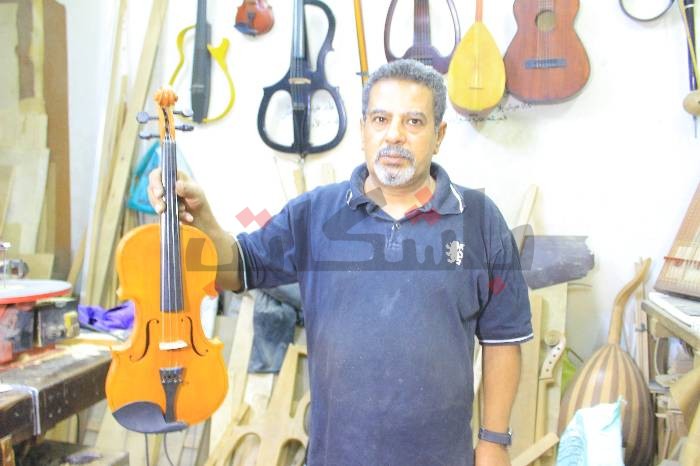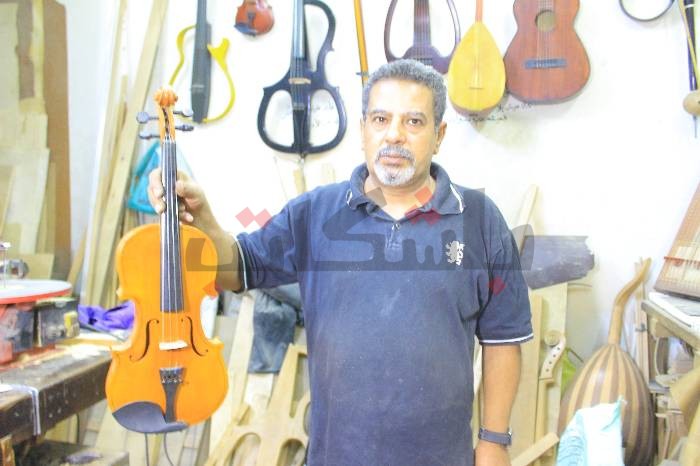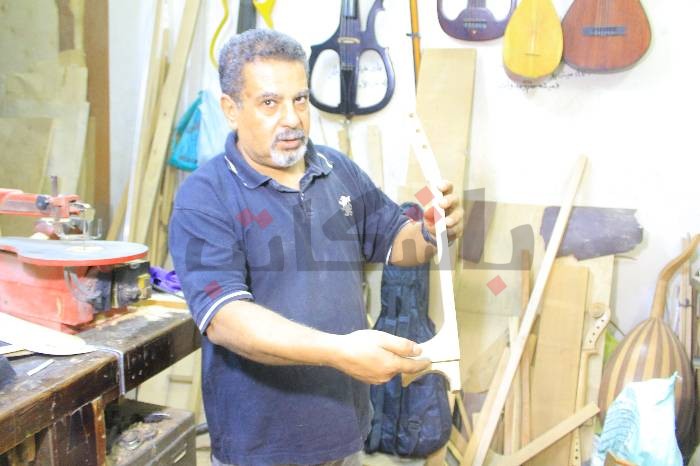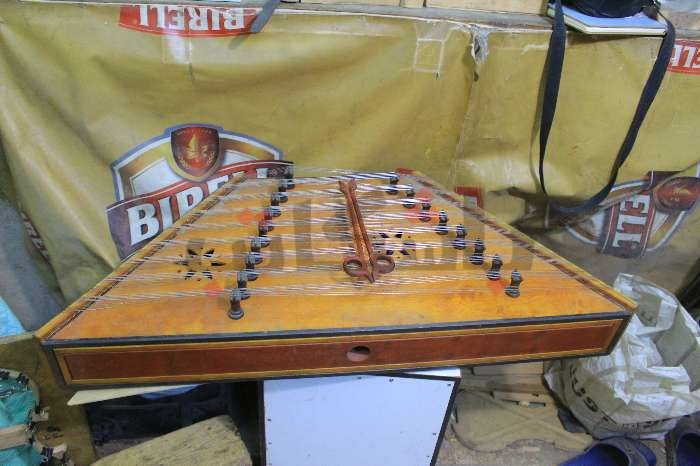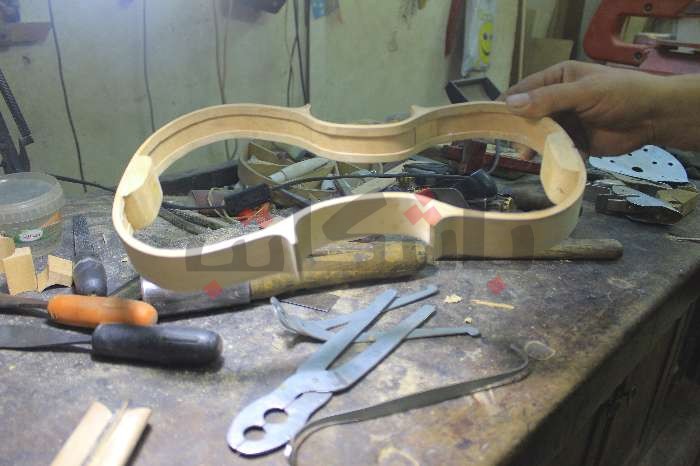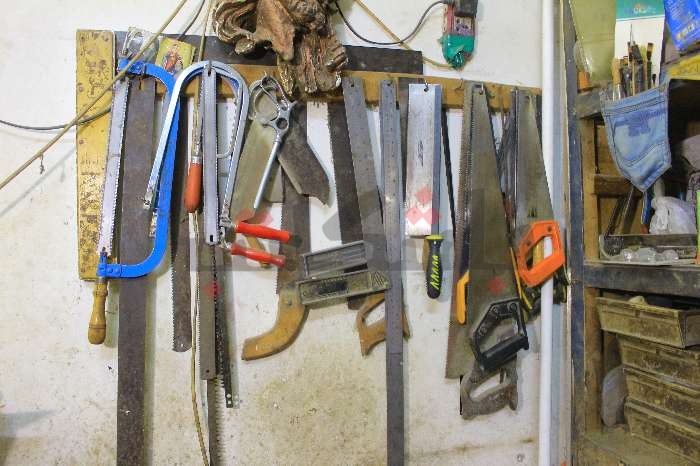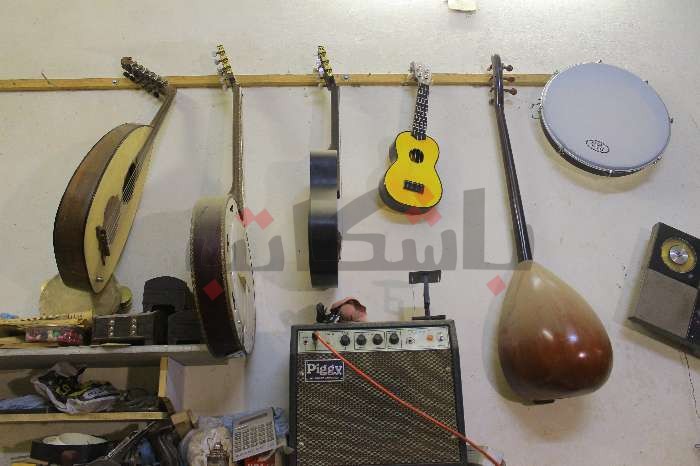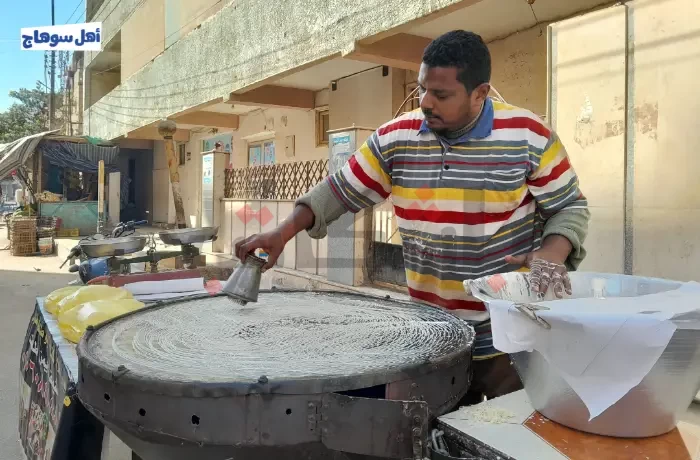In a crowded area in 15 Street in Sohag, there is a very small shop that many would miss, and despite its simplicity and small old shelves inside, the shop exudes art and creativity.
In front of the store sits a young man in his twenties playing his guitar entertaining pedestrians, this guitar was made by Mr. Rafaat in his workshop known as “The Artist Workshop”.
“I used to be an antiques maker. I love sculpting and bending wood to my will. I think I am a wood expert. I decided to enter the field of musical instrument making when I was twenty years old, when my son Mario asked me to buy him a guitar to learn how to play it”, said Rafaat Khalaf to “Ahl Sohag”.
Rafaat didn’t think twice and decided to make the guitar himself, and his success in that was his real launch into making musical instruments, and day by day with his increasing interest in them Rafaat became a distinctive landmark of 15 Street.
He managed to make 30 music instruments, most distinguished of them are: Qanun, Violin, Simsimiyya, Rebab, Oud, Flute, traditional Oboe, Armenian Duduk, Persian Tambourine, Tambourine, Daf, Kora, Ukulele, Santoor, and Cello.
“I rely on beechwood and mahogany, except for guitar pegs and strings which I buy”, said Rafaat.
Mr. Rafaat lives in the East area, he goes daily to 15 Street and opens his workshop from the early morning until sunset. He started doing this after his retirement after working as a store keeper in the Health Directorate in Sohag when he reached sixty years old.
He taught himself how to make musical instruments, he studied and learned the components, techniques, and shapes of the instruments until he excelled in making them; he would hold a piece of wood and it would bend to his will, and despite not being able to play these instruments, this didn’t diminish his determination to make them.
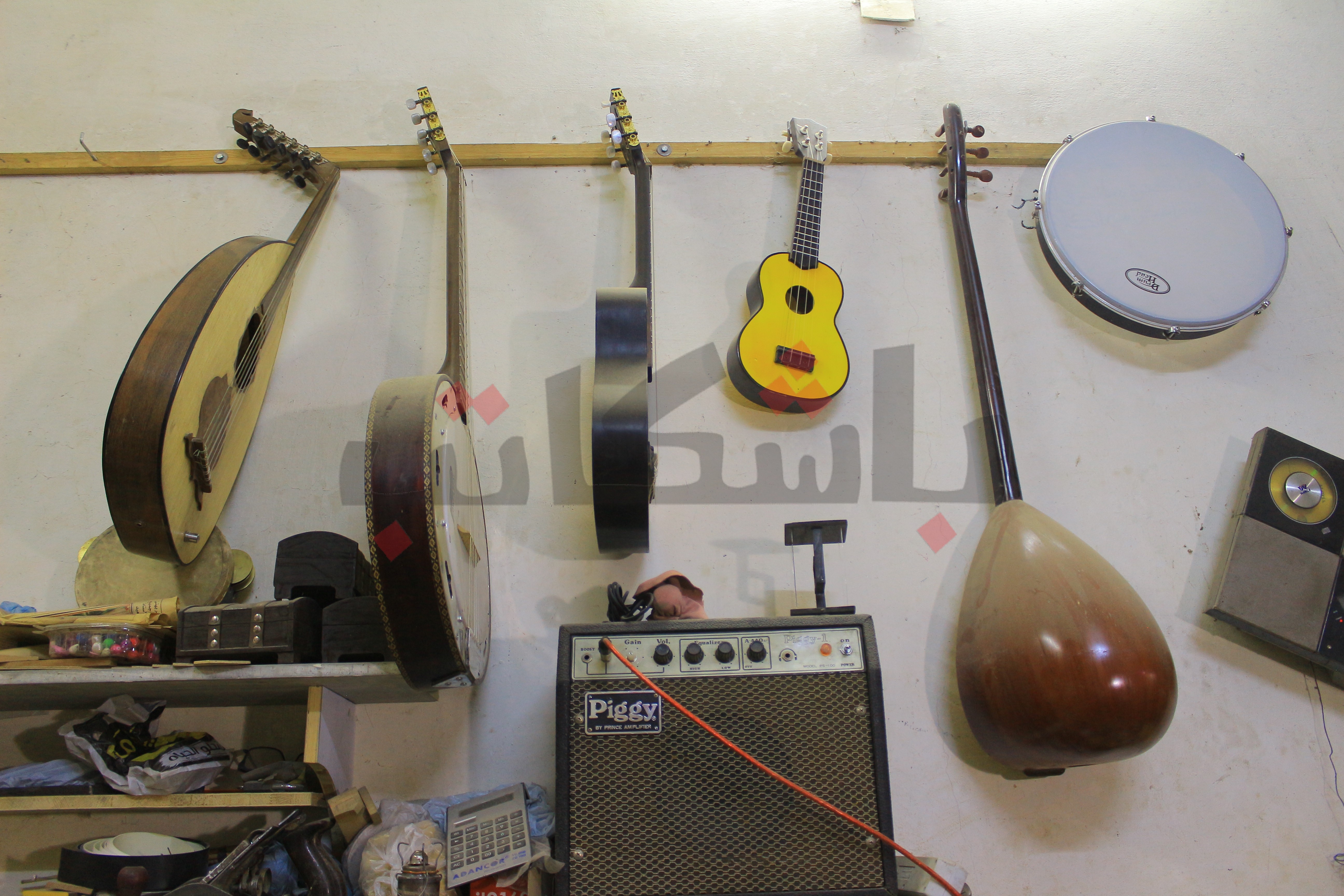
It takes Rafaat three months to make a Qanun instrument, “it has many strings, unlike making the Flute or Kora which do not take so much time”.
Despite his unending passion for his profession, Rafaat describes himself as a good doctor in a town without sick people, “there is no demand on buying musical instruments in Sohag; musicians are few here, and Covid-19 has affected the sales”.
Rafaat also thinks the reason that sales are low is due to the financial distress people are suffering now.
Guarding the profession and creating art are not reasons enough for the people of Sohag to give Rafaat the recognition he deserves, “no one realises the importance of musical instruments, and Sohag lacks awareness or interest in art, and what surprises me is that most of the customers coming to the shop don’t know the names of the instruments, they make fun of them asking: “what’s the price of this thing?””.
Rafaat is unable to understand the behaviour of some customers who would fight with him bargaining the price of a particular musical instrument.
The cultural cringe has haunted the luthier for years, customers won’t buy from him for being Egyptian, whereas they would buy from the foreigners, “some musicians who tested my instruments testified that they surpassed Italian and German ones”, said Rafaat.
Rafaat knows his customers' preferences; girls are interested in buying violins, boys like guitars, whereas old people are attracted to ouds, the choices that he sees as typical ones as no one is interested in buying rare instruments.
Rafaat faces many challenges in making his instruments, like the availability of the tools and materials, so he makes them himself like the copper plates for the qanun instrument.
He uses recycling technique as an alternative in musical instruments making, such as reusing tin cans, ladles, refrigerator serpentines, and bicycle wires. He is keen on making lightweight, powerful-sounding musical instruments, “I make an instrument that would articulate any defect in it”.
Despite his skills, Raafat didn’t make it to the Guinness Book of World Records, “it was recorded that the highest number of instruments made by a person were 12, whereas I made thirty”, he commented.
Rafaat’s determination on continuing being a luthier is not supported by those around him; his family criticises him saying that he spends a lot of time and exerts a huge effort for nothing, “sometimes, more than three months pass without selling a single musical instrument, and in one day I may earn 25 EGP, or I may sell one without making any profit, for flute price ranges between 50 to 75 EGP”, he clarifies.
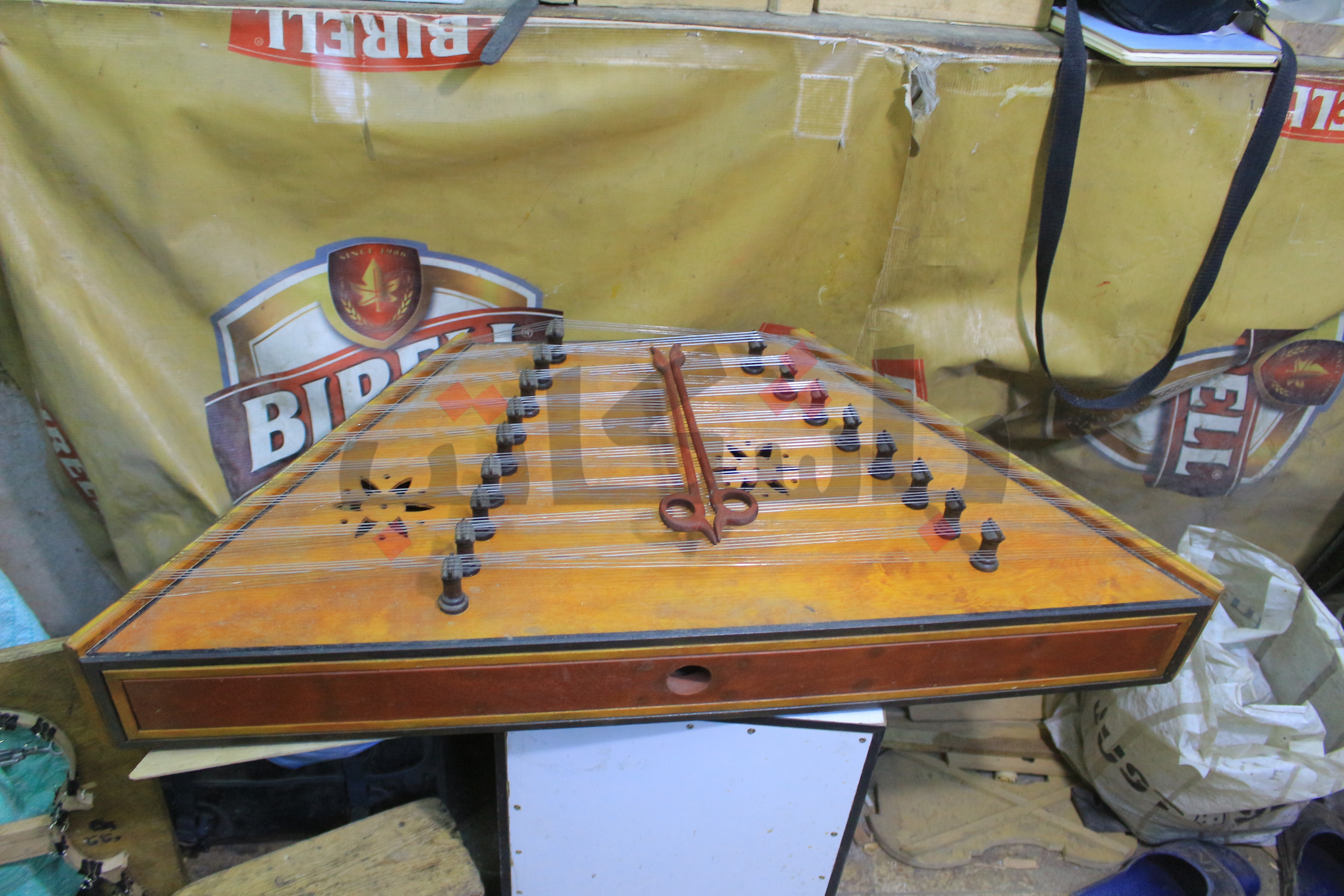
That’s why the sixty-year-old retired man depends on his pension for covering life expenses, yet the love for musical instruments’ making compels him to continue making them, “I’m like a monk… I hope the government would use my talent and invest it in establishing an institute for musical instruments making; when a foreigner makes a violin, they would just shape the wood, but I make the violin, the pegs, comb, and F holes, which is most of the instrument’s components”, said Rafaat.
